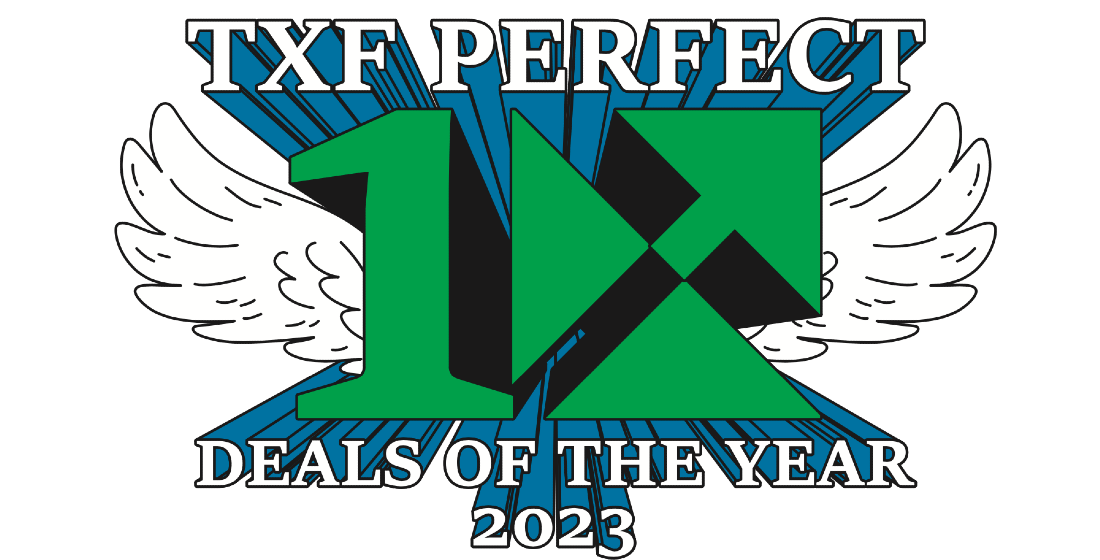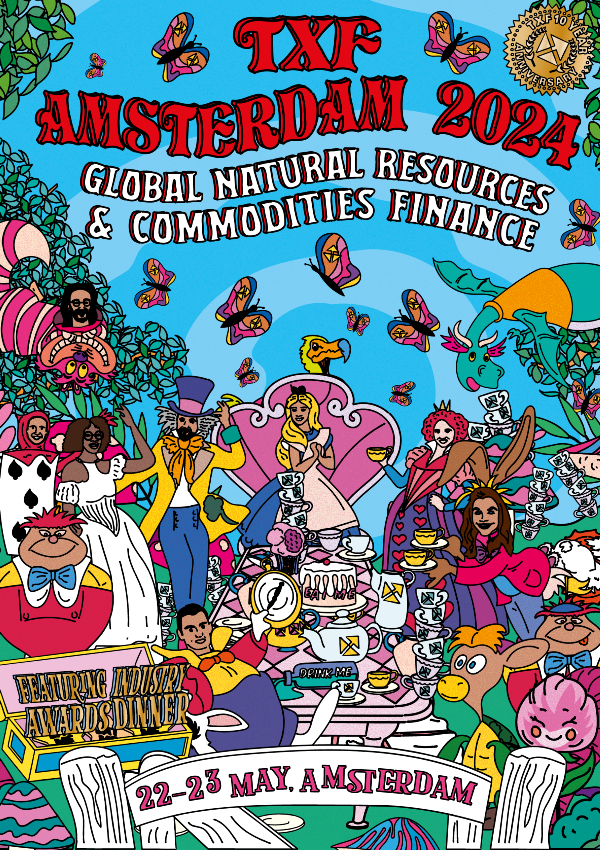Moving ahead in southern Africa
TXF last week held its annual Cape Town Conference on southern African Commodities, Export & Project Financing. Here, Jonathan Bell highlights some of the key takeaways from the event and some further recent important major project developments.

For many of you, sub-Saharan Africa is possibly a ‘no-go region’, and for others active on the continent it is very much country and deal specific. Increased risk, in many guises, is usually the overwhelming perception for those from outside the region. But, for those that work in the region on a regular basis, the evaluation and mitigation of the risks involved is paramount in counterparty and deal evaluation.
Consequently, the deal discard ratio is greatly enhanced. And for the transactions and projects which do make it through the assessment and due diligence processes those deals take much longer to come to the table. For those who do their proper homework, the rewards and future prospects can be substantial.
So, it was probably entirely consistent that when TXF asked its Cape Town conference audience last week which words spring to mind when they think about trade and projects in southern Africa that the two foremost were: Opportunity and Growth. In an audience response interactive session, these two words were prominent on the ‘live’ screen in the centre of a word cloud. That says an awful lot about the mindset of those working in the region.
There were numerous important takeaways from the event, and here I will address just a selection of those:
Development of intra-African trade is vital for all the countries of Africa. In particular, intra-African trade could be the key to success for southern Africa. The African Continental Free Trade Area (AfCFTA) is an ambitious undertaking, and its full implementation is unclear, but if done well it would be game-changer for the continent.
Africa’s intra-regional trade lies well below that of other regions. In 2016, intra-African exports made up 18% of total exports, compared to 59% and 69% for intra-Asia and intra-Europe exports, respectively. The figures for imports are similar.
The AfCTA agreement is set to be signed by all 55-member states of the African Union, bringing together 1.2 billion people. To date, 49 countries have signed the agreement.
The AfCFT will create a single set of rules for trade and investment among all African countries and provides legal certainty for traders and investors through the harmonisation of trade regimes.
The draft agreement commits countries to removing tariffs on 90% of goods under phase one, with 10% of ‘sensitive items’ to be phased in later. The agreement will also liberalise services and aims to tackle so-called non-tariff barriers which hamper trade between African countries, such as long delays at the border.
Speaking at the TXF Cape Town conference last week, the South African Trade and Industry Minister, Rob Davies, said in the keynote opening address: "AfCFTA, comprises of 55 African countries and, once entered into force, will constitute the largest free trade area globally. As a flagship project of the African Union's Agenda 2063, the AfCFTA aims to build an integrated market in Africa that will see a market of over one billion people with a combined GDP of approximately $3.3 trillion."
The United Nations Economic Commission for Africa estimates that the AfCFTA could dramatically increase intra-Africa trade to approximately 52% by the year 2022.
This may seem like an unrealistic jump, but one current project on improving transit through a southern African border corridor highlights how things can easily be improved. A case study on the Beitbridge border crossing project was examined in close detail during the conference. The Beitbridge crossing links South Africa with Zimbabwe and is the most important trade corridor in southern Africa. Every day up to 1,000 trucks transit the border and some 15,000 people. Each truck takes on average six days to get through!
The project to revamp and upgrade facilities at this crossing is the first flagship project since the country has opened up, and as gateway for the whole of southern Africa it is a priority project and has been awarded National Project Status by Zimbabwe. The project will cost around $170 million exclusive of IT and technology, and around $300 million overall on a PPP basis.
Once in operation, it is estimated that trucks will have a few hours wait rather than days – and thus immense cost savings. Under the financing structure, Zimbabwe does not have to provide sovereign guarantees. The deal is commercially bankable and a great one for the region, commented one of the sponsors on the transaction. “Africa has to do more of this type of project if intra-African trade is to improve”, stated one commentator.
Sovereign debt burden is suffocating. The debt burden on many African countries has become a particularly tight noose preventing many governments from performing basic and essential budgetary expenditure such as education, sanitation, housing and healthcare, not to mention provision of power. Countries such as Zambia and Ethiopia were highlighted as markets now on high risk of debt distress. Increasing conflict with the IMF could be on the horizon for some countries under IMF debt programmes but intent on pursuing certain goals at-odds with laid-down parameters.
Mozambique, in particular, has a huge debt burden – and some of this is still unaccounted for. However, there are currently rumours of a debt deal. Mozambique seems to remain ‘a tale of two countries’; the one linked to the country’s gas industry and the one outside of that.
Countries in southern Africa with low levels of external debt include Botswana, the DRC and Zimbabwe – but in the case of the latter this is more due to the years of sanctions. However, for Zimbabwe, it will need to clear its debt arrears before it can go to international lenders. And, unfortunately, for Zimbabwe, its international currency reserves are particularly low.
Development of industries is vital. The development through the processing of more raw materials in-country is vital to the success of African markets. Too much raw material is being exported without any value-added component. This needs to change. The continued export of raw materials is part of the colonial legacy, and in order for African nations to create jobs, gain greater economic wealth some degree of processing and value-added needs to take place. This will be a game changer for many countries across the continent.
As the South African Trade and Industry Minister, Rob Davies, said: “There needs to be more value-added. That’s the African journey we are entering. Development integration is the path we need to be on.”
Positive attitude prevails towards Zimbabwe. Market players have a generally positive outlook on Zimbabwe and are confident that change will come over time. It is predicted that Zanu PF won’t face a leadership challenge, but that the changes will take place within the party itself. However, questions surround the availability of hard currency in the country, as investors wonder how they will get paid. There are positive changes coming from President Mnangagwa’s government, but only time will tell how much of a difference these will make.
Interestingly, those who invest in Africa are not as keen to learn about more stable countries like Botswana. It seems that companies active across the region, and probably the continent, are attracted by a challenge and look for banks/financial solutions with sufficient risk appetite to support them.
What the audience says. During the conference we undertook a ‘live’ poll on various issues, and a few of these I will list here. In terms of which sectors delegates expected most development in, infrastructure scored 52%, while oil and gas only scored 15%. With regards to what were the biggest challenges facing business development, 26% said geopolitical risk, and 24% cited internal inefficiencies of one sort or another. In terms of outlook on their corporate business, 56% said their businesses were on the increase, while 23% said business was steady.
Interestingly, on a question related to the overall perception of actual risk of doing business in Africa, 56% said that it was greater than the actual risk, while 31% thought it was about accurate.
For those interested, TXF will provide a full separate report on the poll findings next week.
Financial collaboration is increasingly key. Through several sessions emphasis was placed on the fact that many considered financial collaboration as being increasingly necessary to ensure project development was successful. And these combinations were across the board with commercial banks, developmental financial institutions, multilaterals and the private insurance market all working together. There was an impressive response from attendees that development banks and multilaterals were seen as working partners for commercial banks and not competitors.
In relation to the African Development Bank, there was the overall impression that the agency had stepped-up in the last couple of years. It is now much more focused on projects with a meaningful impact on regional and pan-African development.
Mixed messages in the mining sector. Confidence in certain commodity prices is rising eg copper, cobalt, although it’s impossible to predict which direction the market will take. However, overall the market demand for mining products is high, suggesting a promising future for the industry – helped by the renewables energy and electric vehicle sectors.
Some of the historically big players are retreating for the mining market, creating space for specialised financiers and funds to step in. Political risk is a huge concern for the industry, and many banks are backing away from larger projects because of increased pressures of regulation and compliance. DRC remains extremely problematic, and concerns also remain in Zambia over contractual and legal issues with the government on mining contracts.
Where some of the larger banks are turning away from the mines, Chinese companies are entering in to fill the vacuum. Companies are giving away long-term projects, and arguably national identity, to Chinese players with fewer regulatory and compliance barriers. However, China’s heavy involvement fuels local innovations, pushing firms on the ground to make deals happen and growing a local entrepreneurial mindset.
The South African 2018 Mining Charter will have a seismic impact on the industry. Firstly, the new charter will offer mining rights for a certain period of time, but these will not be automatically renewed as they have been in the past. Secondly, and perhaps more pressingly, the charter outlines a 70% local content requirement. This may prevent ECA involvement in mining, thereby inhibiting international involvement.
On the fence for South African outlook. Our audience response survey also displayed surprisingly mixed feelings when it came to confidence in South African President Cyril Ramaphosa. Confidence may be split, but it’s worth considering the vast task he has taken on. South Africa is still a recently downgraded country, and certain SOEs (namely Eskom, Transnet, and SAA) are experiencing various wide-ranging difficulties.
Perhaps there are stable economic steps being taken, but it’s also worth noting that South Africa’s education system is not getting a great deal of investment – a sector which, if given substantial support – could create a skilled workforce to help drive economic growth.
South African Land reform is a big issue. Land reform remains one of the thorniest topics in South African politics, with investor confidence being knocked by the mere mention of policy uncertainty. It seems that headlines are dominated by the polarising elements of the proposal, focusing on the idea of ‘land grabbing’, although the ANC has made it clear that this will not happen. However, this in itself has been enough to send shockwaves through the industry, as rhetoric overtakes reality. Market players are wary of expressing opinion on the issue given its sensitivity.
Africa Investment Forum gives a big boost to projects
In early November, the inaugural Africa Investment Forum 2018 convened by The African Development Bank (AfDB) took place in Johannesburg. The main goal of the forum was to catalyse investments into the continent through a unique marketplace platform designed to advance projects to bankable stages, raise capital, and accelerate the financial closure of deals.
According to the organisers, the value of boardroom projects tabled for discussion during the forum stood at $47 billion. Investment interest was secured for 49 projects worth $38.7 billion.
The projects ranged in diversity from infrastructure, energy, transport and utilities, industry, agriculture, ICT and telecoms, water and sanitation, funds/financial services, health, education, hospitality and tourism, housing, and aviation. A total of 169 bilateral meetings took place in the marketplace boardrooms.
Notable among the deals which secured investor interest were:
• a $3.7 billion railway expansion and development project in South Africa. The investment will support the acquisition of new rolling stock, expansion of depot facilities and upgrades to existing signalling and train control systems.
• a fertiliser & petrochemical project – a $3 billion investment for the construction and operation of a world-class petro-chemical facility to produce methanol (1.75 mil mtpa), ammonia (1.35 mil mtpa) and urea (1.35 mil mtpa).
In the energy sector, discussions took place on the construction of the second phase of a 450 MW power plant in Tunisia worth $440 million. Agreements were also reached on a number of action plans designed to accelerate regulatory reforms and to unlock bottlenecks that will help facilitate investments in a sector with a potential value of $70 billion.
And, say the organisers, in Africa's transportation and logistics sector, a major milestone was reached with the launch of Thelo DB, a new partnership between Thelo SA of South Africa and Deutsche Bahn of Germany. The partnership intervenes in the critical railway sector of Africa's economy, which has an annual deficit of around $62 billion.
McKinsey states Africa is the world’s next big growth market
According to McKinsey there is a trillion-dollar opportunity to industrialise Africa, to meet rising domestic demand and create a bridge-head in global export markets A new book by McKinsey asserts that Africa is poised for economic acceleration, akin to the Asian boom. While other geographies are seeing incremental growth, global companies that get in early and join the African champions shaping the right strategies, can sustain double-digit profit growth over the next few decades.
In Africa’s Business Revolution: How to Succeed in the World’s Next Big Growth Market (Harvard Business Review Press) authors Acha Leke, Mutsa Chironga, and Georges Desvaux detail the research that McKinsey has done and share insights into Africa’s future growth prospects. The conclusions they draw are distilled from 3,000 McKinsey client engagements, in-depth proprietary research and interviews with 40 of Africa’s most prominent business and development leaders.
Leke and Desvaux, both senior McKinsey partners and Chironga, an executive at Nedbank, say: “With over 400 African companies earning annual revenues of $1 billion or more, we can identify what works. The highly successful businesses are often African companies, but many are entrepreneurial firms with Western, Indian, or Chinese founders. The most consistently profitable businesses demonstrate a higher tolerance for risk, are eager to adapt their products, production and distribution for African consumers, and commit to investing and building their businesses for the long-term.”
The book examines several examples of African businesses that have translated opportunities into enduring business value. For example, it shows how Nigerian conglomerate, Dangote Industries, industrialised to serve regional markets through import substitution and improved margins through vertical integration.
Now time to get up to speed on the markets.
Here's our exclusive TXF Essentials subscriber content
Shop talk: New Citi export head looks to partnerships, not pricing
Soon to make the move to New York from his current base in Dubai, Ahmet Bekçe, the newly appointed head of global export and agency finance origination in Citi’s Trade and Treasury Solutions department, spoke to TXF about market prospects and concerns, and what Citi brings to the table.
Risky business: Where are we now in world trade weaponization?
TXF and Coriolis Technologies’ country risk index digs deep into the strategic trends in militarisation of trade and in this overview, Rebecca Harding, CEO of Coriolis Technologies sees weaponization of trade in unexpected areas. This is the first in the series of seven insights.
Outsourcing due diligence: Keeping deals the right sort of clean
With stringent regulation and increasingly complex transactions pitched against borrowers’ expectations for rapid decision making, the pressures on due diligence are at an all-time high. Matt Reed, Associate Director at RedRidge Diligence Services, discusses the latest trends in how capital providers in the trade and project finance space are managing these pressures.
Risky business: Marriages of convenience and hybrid trade wars in Russia and Eurasia
TXF and Coriolis Technologies’ country risk index investigates the trends in trade weaponization in Russia and Eurasia. Here, Russia’s ‘hybrid war’ trade strategy and it’s marriage of convenience with China’s trade tactics are investigated by Rebecca Harding, CEO of Coriolis Technologies. This is the second in the series of seven insights.
Shop talk: Kexim raises risk appetite amid pricing squeeze
From Asia to the US, Kexim has a number of large-scale oil and gas projects in the pipeline. But after years of cancelled projects, as the liquid Korean ECA flexes its muscles again and increases exposures, sponsors are squeezing the ECA and lenders on pricing.
Risky business: US exports populism, Canada and Mexico weaponize
The US’s most successful export at the moment seems to be populism, says Rebecca Harding, CEO of Coriolis Technologies. TXF and Coriolis Technologies’ country risk index investigates the trends in trade weaponization in the Americas. Here, Canada and Mexico export arms, Central America imports populism. This is the third in the series of seven insights.
Offshore wind finance: A full-blown exchange of ideas
Offshore wind projects are getting bigger, costs are getting cheaper, the lending market is more diversified and even the seminal corporate PPA market is picking up. But as demand for lending rises, the sector faces some major financing challenges over risk allocation and liquidity – the answers to which are already being formulated.
Plus, to top things off...the news you thought you had but didn't
Bid deadline for Germany's A3 extended
The bid deadline for Germany’s €1 billion ($1.1 billion) A3 road widening PPP project – Germany’s largest V-Model project to date – has been extended from late November this year to the beginning of 2019…
La Solanilla solar PV project priced
Fotowatio Renewable Ventures (FRV) has closed a tightly priced €28 million ($32 million) 16-year loan to finance its 50MW La Solanilla solar PV project in Spain…
Bibby appoints new head of Export Finance
Bibby Financial Services (BFS) has appointed Jim Davis as managing director for Export Finance. Davis joined BFS from Yorkshire Bank in 2011 and has been head of sales for West Midlands since 2013…
Sea Cloud Cruises seals CESCE-backed loan
Sea Cloud Cruises Group closed a €45 million ($51 million) CESCE-backed buyer’s credit facility on 17 November to finance the construction of a three-master sailing cruise ship…
Petroperu refinery financing to close this week
After signing in January, state owned Petroperu is set close an ECA-backed financing backing upgrades for its $5 billion Talara refinery on Tuesday…
Tilt Dundonnell Wind debt sold down
A$300 million ($217 million) of the A$400 million project debt raised by Tilt Renewables for its 336MW A$560 million Dundonnell wind project in Western Victoria has been syndicated by joint underwriters, MLAs and financial advisers MUFG and National Australia Bank (NAB)…
DP World close on Posorja port DFI project debt
DP World Posorja has closed a $377 million financing for the first phase of its $1.2 billion multi-purpose Posorja port project in Ecuador…
Bayonne power plant acquisition loan priced
Morgan Stanley Infrastructure Partners closed a $500 million seven-year miniperm on 21 November to finance the acquisition of the Bayonne Energy Center gas/oil-fired power project in New Jersey. The deal was three times oversubscribed…
Croatia's Zagreb Airport to close refi next month
Sponsors of Croatia's Zagreb Airport – Bouygues Batîments (20.77%), Aeroports de Paris Management (20.77%), Marguerite Fund (20.77%), IFC (17.58%), TAV Airports (15%), and Viadukt (5.11%) – are expected to…
Dongying Lufang Metals closes $275.5m pre-pay
Dongying Lufang Metals Material Company has closed a three-year $275.5 million pre-payment facility. The loan will be used for working capital requirements…
Mercuria signs tightly priced $1.35bn RCF
Mercuria has signed a $1.35 billion equivalent revolving credit (RCF). The deal comprises a one-year $710 million tranche A (with a CNH sublimit of $255 million-equivalent), a…
Ignite attracts DFI and bank interest for hybrid power plant
Ignite Energy Projects and offtaker Resolute Mining have signed a joint development agreement for a 40MW (minimum capacity) hybrid power plant at the Syama Gold Project in Mali…
Keolis Amey finalising rolling stock procurement
Keolis Amey Operations is finalising an £800 million ($1.02 billion) procurement of rolling stock for its Wales & Borders rail franchise in the UK. SMBC and Equitix are financing the units…
Rabigh 3 IWP to close over next three months
Sponsors of the Rabigh 3 independent power and water project (IWP) in Saudi Arabia – ACWA Power, Saudi Brothers Commercial Company and Sidem – are expected to reach financial close over…
Four bidding for Jizan refinery advisory mandate
Lenders are bidding for the advisory mandate on the acquisition financing for the $10 billion Jizan oil refinery PPP scheme in Saudi Arabia. Current owner Saudi Aramco is selling the gasification assets…





